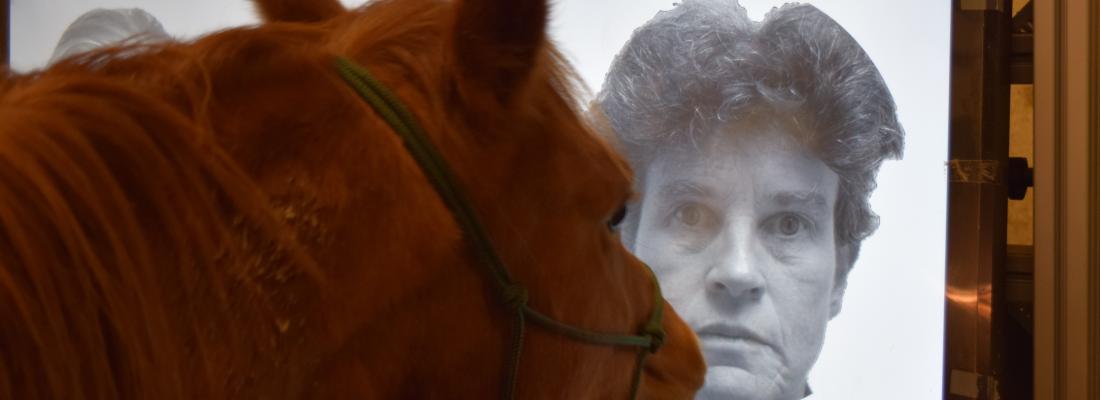Biodiversity Reading time 3 min
Horses, experts in facial recognition
Published on 14 April 2020

Using a touchscreen, eleven horses participated in a face recognition test developed by the researchers. The horses approached the screen voluntarily and launched the test with a touch of their nose. At each trial, two images appeared simultaneously on the screen: the picture of a familiar face and that of a stranger. Whenever they touched the image of the face they knew, the animals would receive a reward. The participants rapidly understood the rules of the game. Researchers then began showing faces of people the horses had met over six months prior to the test, which the animals had no problem recognising. These results demonstrate that horses have advanced face recognition capacities. Would human beings be able to point out animals they saw months ago by simply looking at a picture?
This new knowledge on domestic ungulates indicates sophisticated socio-cognitive skills and it should be taken into account in our everyday interactions with them. Moreover, these results raise new ethical issues in regards to human behaviour towards equines, particularly in terms of breeding, and the relation between breeders and their animals.
In regards to the methodology, the study confirms that horses are capable of using computer-controlled screens and that they can understand the nature of figurative 2-dimensional images—an interesting skill on its own. Tests in which animals are placed in front of a screen and shown real life images or films are currently being carried out; these promising tools will allow researchers to assess several other cognitive skills on the same species in the near future.
|
Reference: Léa Lansade, Violaine Colson, Céline Parias, Milena Trösch, Fabrice Reigner, Ludovic Calandreau. Female horses spontaneously identify a photograph of their keeper, last seen six months previously. Scientific Report 10, 6302 (2020). |
